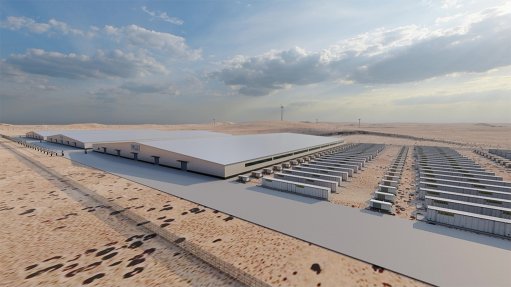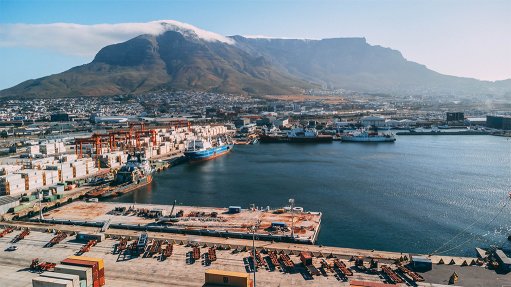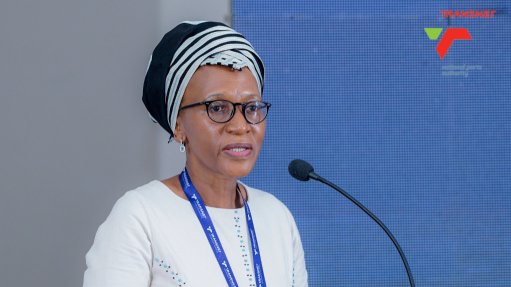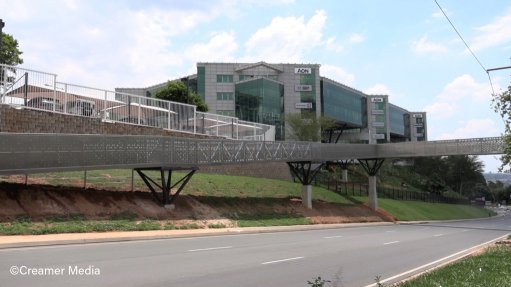Economic development not a qualifying criteria for 513 MW battery storage bids
Economic development factors have not been included as qualifying criteria for South Africa’s inaugural Energy Storage Independent Power Producer Procurement Programme (ESIPPPP), through which the Department of Mineral Resources and Energy aims to procure 513 MW, or at least 2 052 MWh, of battery storage across five substation sites in the Northern Cape.
The ESIPPPP request for proposals (RFP) was launched on March 7 and the bid submission date has been set for July 5, while Eskom has selected sites at the following substations:
- Aggeneis 77 MW, at a minimum installed energy rating of 308 MWh;
- Ferrum 103 MW, at a minimum installed energy rating of 412 MWh;
- Garona 153 MW, at a minimum installed energy rating of 612 MWh;
- Mookodi 77 MW, at a minimum installed energy rating of 308 MWh; and
- Nieuwehoop 103 MW, at a minimum installed energy rating of 412 MWh.
Eskom selected the sites in an effort to unlock renewables capacity in the grid-constrained province, but the storage projects selected are also required to offer ancillary services.
Bids outside of these specified substation connection areas will not be considered.
Speaking at a virtual bidders conference, IPP Office contract management and economics acting head Louis Moyse confirmed that, while 10 points had been allocated to economic development, these were neither obligatory nor a qualifying criteria.
He said the Constitutional Court’s declaration that the regulations under the Preferential Procurement Policy Framework Act (PPPFA) were invalid meant that the new regulations had been “substantially limited” as from January 16.
The court found that the Finance Minister had exceeded his powers by prescribing procurement rules to organs of State, which meant that the 2017 regulations under the PPPFA were in contravention with Section 217 of the Constitution.
Finance Minister Enoch Godongwana published new preferential procurement regulations, published on November 4, which he described as a stopgap measure given that the National Treasury was moving ahead with a Public Procurement Bill, which would overhaul the procurement legislation.
Given developments, the IPP Office was unable to employ the bespoke economic development scorecard used during previous procurement processes and the economic development elements for the ESIPPPP had instead been included as “specific goals”.
These specific goals had been drawn from the bespoke scorecard and included ownership, which carried the biggest weighting, job creation, local content, management control, skills development, enterprise and supplier development, as well as socioeconomic development.
“Although commitments to any or all of the specific goals are not compulsory, it is important to remember that it is a social compact of this programme and bidders should not be compelled, but it should be a natural consequence of the programme,” Moyes said.
He also indicated that, until the regulatory framework had been changed, other procurement programmes undertaken by the IPP Office would also not include economic development as a qualifying criteria.
IPP Office head Bernard Magoro indicated that, in terms of Ministerial determinations published by Minister Gwede Mantashe in line with the Integrated Resource Plan of 2019, the office had a mandate to procure 28.5 GW of new generation capacity by 2030.
The bulk of this new capacity would be in the form of wind and solar photovoltaic, but Magoro reported that procurement documentation was also being prepared for further battery storage programmes, as well as a 3 000 MW gas-to-power RFP.
IPP Office legal head Lena Mangondo reported bid responses would be scored out of 100 points, with the 10 points set aside for economic development not included as 'functionality criteria’, as was the case for the legal, technical and financial aspects.
Article Enquiry
Email Article
Save Article
Feedback
To advertise email advertising@creamermedia.co.za or click here
Comments
Press Office
Announcements
What's On
Subscribe to improve your user experience...
Option 1 (equivalent of R125 a month):
Receive a weekly copy of Creamer Media's Engineering News & Mining Weekly magazine
(print copy for those in South Africa and e-magazine for those outside of South Africa)
Receive daily email newsletters
Access to full search results
Access archive of magazine back copies
Access to Projects in Progress
Access to ONE Research Report of your choice in PDF format
Option 2 (equivalent of R375 a month):
All benefits from Option 1
PLUS
Access to Creamer Media's Research Channel Africa for ALL Research Reports, in PDF format, on various industrial and mining sectors
including Electricity; Water; Energy Transition; Hydrogen; Roads, Rail and Ports; Coal; Gold; Platinum; Battery Metals; etc.
Already a subscriber?
Forgotten your password?
Receive weekly copy of Creamer Media's Engineering News & Mining Weekly magazine (print copy for those in South Africa and e-magazine for those outside of South Africa)
➕
Recieve daily email newsletters
➕
Access to full search results
➕
Access archive of magazine back copies
➕
Access to Projects in Progress
➕
Access to ONE Research Report of your choice in PDF format
RESEARCH CHANNEL AFRICA
R4500 (equivalent of R375 a month)
SUBSCRIBEAll benefits from Option 1
➕
Access to Creamer Media's Research Channel Africa for ALL Research Reports on various industrial and mining sectors, in PDF format, including on:
Electricity
➕
Water
➕
Energy Transition
➕
Hydrogen
➕
Roads, Rail and Ports
➕
Coal
➕
Gold
➕
Platinum
➕
Battery Metals
➕
etc.
Receive all benefits from Option 1 or Option 2 delivered to numerous people at your company
➕
Multiple User names and Passwords for simultaneous log-ins
➕
Intranet integration access to all in your organisation




















